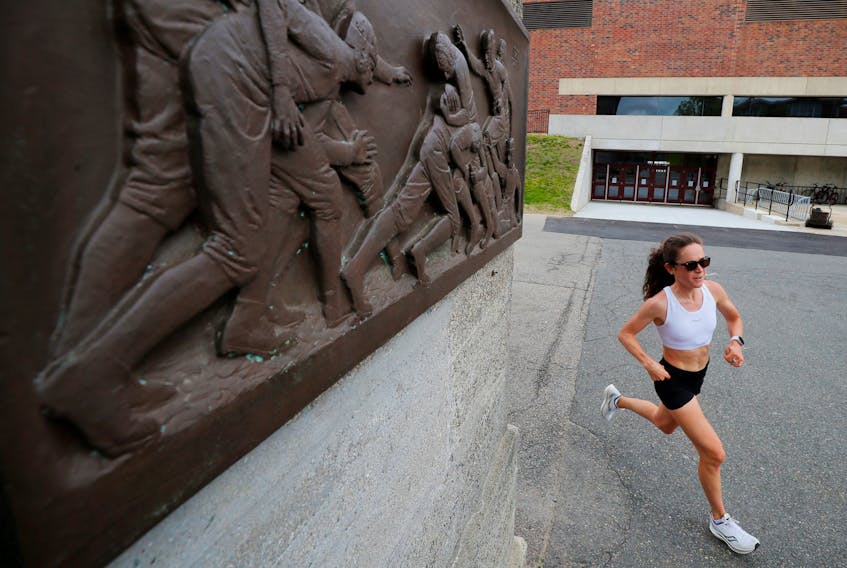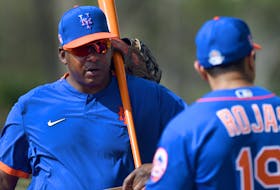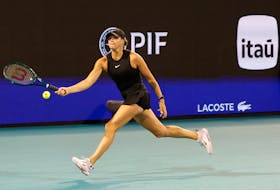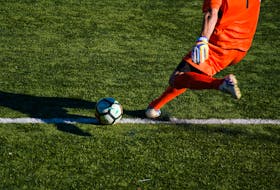By Amy Tennery
(Reuters) - American Aliphine Tuliamuk was about 10 minutes into her victory news conference when the question was posed: Do you have any concern about the coronavirus?
It was Feb. 29, 2020 and she had just punched her ticket to the Tokyo Games, winning the United States Women's Olympic Marathon trials in Atlanta, Georgia, with a time of 2:27.23.
Like her fellow Olympians on stage -- as well as millions of people around the globe -- she had little idea what was to come: a historic Olympic postponement and a pandemic that upended life.
"When they asked me that question, I thought, 'You're crazy'," said Tuliamuk, who -- laser-focused on her training -- had watched only a bit of news on the virus at the time.
"But then a week later the world shut down."
While U.S. trials for sports including swimming and gymnastics have yet to take place, Tuliamuk and her five fellow marathon qualifiers were among the last few to claim their spot on Team USA before COVID-19 put the world on hold, a coveted position that nonetheless came with challenges.
Tuliamuk, 31, said she was devastated by the postponement.
"Thinking a year ago, you know, we were in a different place," she told Reuters. "We were learning about this disease, but we didn't know that it was gonna take a hold of the whole world."
'EMBRACE THE CHAOS'
Molly Seidel, a Boston-based runner who finished second in the women's division on her marathon debut, spent the year learning to "embrace the chaos" after the pandemic stripped away the stability that came with her sport.
"You go from this huge emotional high -- like I was, frankly, kind of a surprise to make the team, so it was this thing that I couldn’t have dreamed happening, one of the greatest days of my life -- and then two weeks later Boston is going into lockdown," said Seidel, 26, an ambassador for Strava's 2020 Year in Sport report.
"That was probably the biggest toll on me, the mental aspect," added Seidel, who works with a therapist and has been open about having chronic anxiety and obsessive compulsive disorder (OCD). "All the uncertainty of planning for races and then they get cancelled immediately."
Jacob Riley, a 32-year-old who finished second in the men's marathon trial, with a personal best of 2:10.02 after coming back from Achilles surgery in 2018, said he's able to compartmentalise the "gnawing frustration" in the back of his mind.
"Then all of a sudden you get to the end of the week and you don't understand why you're so tired," said Riley, who got a half-marathon personal best at a race in Michigan in October.
He has enormous empathy for those who might not want the Games to go forward.
A Yomiuri newspaper poll showed last month that the majority of Japanese remain opposed to holding the Olympics this summer amid the coronavirus pandemic.
"I completely understand that the Japanese people might be exhausted and concerned about the massive costs of the Games and having so many people from a foreign country come in," said Riley.
"This is something I wanted to do since I was five years old. But you know, I think the argument against having it is legitimate."
All three runners told Reuters they've used the last 12 months to improve, with training soon resuming in earnest and the men's and women's races set for August.
For Tuliamuk, the year yielded a particularly profound change - she gave birth to a daughter in January.
"Honestly I think that saved me," she said. "I have such a strong belief that I am going to be able to get enough training and fitness that I would be able to compete well."
(Reporting by Amy Tennery; Editing by Toby Davis)









